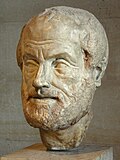SLAVERY 2
As I said in a previous post, I shall be spending September in the archives in Dubrovnik, looking for cases of late medieval slavery (and I hope to post regularly on the blog during my time there).
As I said in a previous post, I shall be spending September in the archives in Dubrovnik, looking for cases of late medieval slavery (and I hope to post regularly on the blog during my time there).
 |
| Dubrovnik: image wikicommons |
My interest in this arises out of a collaborative project on the subject
of ‘LEGALISM’. Anthropologists and
historians have been getting together at St John's to think about the implications of law as
the explicit use of generalising concepts as a way of thinking about human life
and social relations. We’re now beginning
to address the question of property and ownership and have heard wonderful
papers on ownership of water, of scientific ideas, and of labour.
When
you begin to break down deep-rooted assumptions about property, its logic
begins to seem really pretty bizarre. If
the credibility of positive law usually rests on its supposed closeness to
natural law – to what seems logically, instinctively, morally right – property is
quite difficult to justify.
Aristotle
had a go, and came up with four main justifications (and I apologise for the
wild simplification): first, private property encourages productiveness and
incentivises; second, its rewards sustain a sense of fairness; third, it is
deep-rooted in man’s nature; and fourth, it provides an opportunity for
generosity and benevolent behaviour.
 |
| Aristotle: image from wikicommons |
I’m
not convinced of the universality of these arguments: they are certainly
foundational in our culture, but that may just be another indication of their
contingency.
Whilst many of us accept quite unquestioningly the type of logic Aristotle comes up with for private property,
assuming that it refers to land, houses or goods, we do not view the ownership of
other human beings in such terms – indeed, we know that it is abhorrent, and
more than that, we feel that it is bizarre.
Aristotle addresses the issue of slavery in the same sorts of terms as we saw above. His first question relates precisely to the issue
of whether slavery is merely conventional, contingent, a matter of positive
law; or whether the positive law underpinning slavery maps onto natural law, to
what is instinctively, morally, naturally right.
And
yes, Aristotle claims that slavery is justified by natural law. Because, he tells us, some people are
naturally marked out for slavery; slavery is a critical element of the well-being
of the political community; whilst distinctions exist between man and beast, so
natural distinctions exist between slave and master.
There
are many more subtle distinctions in Aristotle’s approach, but you get the
gist. The point is, at this stage, that
if we feel his assumptions regarding slavery to be so problematic, we need to
re-interrogate his assumptions regarding property more generally – assumptions with
which we have all been implicitly brought up.
So,
I hope that my research trip will provide some useful insights into the
legalism of late medieval slavery, but more than this, will suggest ways of challenging
and understanding our assumptions about property more generally.
(nb. See Book I, Chapters iii to vii of the Politics and Book VII of the Nicomachean Ethics)
No comments:
Post a Comment